Alice Walker is a beacon of literary brilliance, a storyteller whose words transcend time and place, shaping the cultural and intellectual fabric of Black literature. Through her novels, short stories, and essays, she has captured the essence of Black womanhood, resilience, and the complex intersections of race, gender, and class. Walker’s groundbreaking work not only amplifies the voices of the marginalized but also serves as a catalyst for cultural reflection and societal change. As we celebrate her legacy in the 5th edition of the Black Creators Challenge, it is imperative to recognize her immense contributions to literature and the profound impact she has had on Black culture.
Alice Walker’s body of work is an extraordinary testament to the power of storytelling. She has authored numerous novels, short stories, poetry collections, and essays that explore themes of oppression, survival, spirituality, and self-discovery. Her writing is deeply rooted in the Black Southern experience, intertwining historical narratives with personal and communal resilience.
The Color Purple
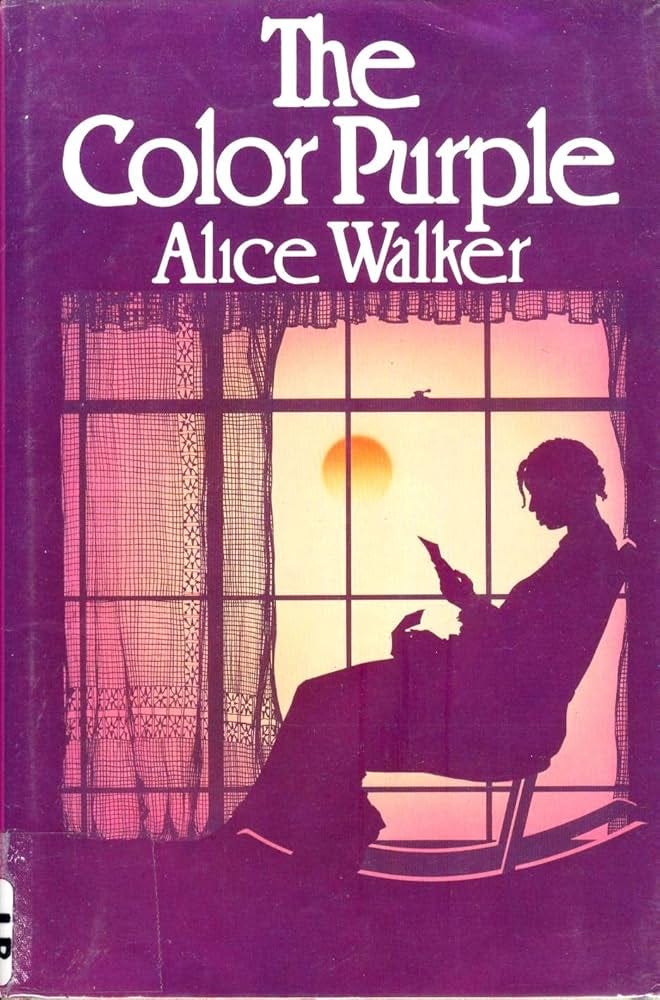
Undoubtedly, Walker’s most celebrated novel is The Color Purple (1982), a Pulitzer Prize and National Book Award-winning work that chronicles the harrowing yet triumphant journey of Celie, a Black woman in the early 20th-century American South. Through a series of letters, Celie narrates her experiences with abuse, oppression, and ultimate self-liberation. The novel is a profound exploration of sisterhood, healing, and the reclaiming of one’s identity in the face of systemic brutality.
The Color Purple has had an indelible impact on literature, film, and theater. The 1985 film adaptation, directed by Steven Spielberg and starring Whoopi Goldberg and Oprah Winfrey, introduced Walker’s powerful narrative to a wider audience. Additionally, the Broadway musical adaptation further reinforced the novel’s timeless resonance. Celie’s story is emblematic of the resilience and dignity of Black women, a theme that permeates much of Walker’s work.
Meridian
Walker’s second novel, Meridian (1976), is a compelling portrayal of activism during the Civil Rights Movement. The novel follows Meridian Hill, a young woman navigating the turbulent landscape of racial injustice while grappling with her personal beliefs and struggles. Through this work, Walker delves into the sacrifices of those who fought for Black liberation, emphasizing the emotional and psychological toll of activism. Meridian serves as a tribute to the unsung heroes of the movement, particularly Black women, whose contributions were often overlooked.
The Third Life of Grange Copeland
In her debut novel, The Third Life of Grange Copeland (1970), Walker crafts a multigenerational saga that explores the cycles of violence, oppression, and redemption within a Black family. The novel’s protagonist, Grange Copeland, undergoes a profound transformation from an abusive husband and father to a man seeking redemption and reconciliation. This powerful narrative reflects Walker’s recurring themes of personal growth, self-awareness, and the enduring impact of systemic racism on Black families.
In addition to her novels, Alice Walker has written an array of short stories and essays that illuminate the nuances of Black life and culture. Her short story collection In Love & Trouble: Stories of Black Women (1973) presents vignettes of Black women navigating love, loss, and survival. Walker’s prose is both poetic and unflinchingly honest, offering a deeply intimate look at the struggles and triumphs of her characters.
Her essay collection In Search of Our Mothers’ Gardens: Womanist Prose (1983) is a seminal work that introduced the concept of womanism, a term she coined to define a Black feminist ideology centered on the experiences of Black women. Through these essays, Walker explores the historical and artistic contributions of Black women, underscoring their resilience and creativity in the face of adversity. This work has been instrumental in expanding feminist discourse to be more inclusive of Black women’s voices and experiences.
Alice Walker’s work extends beyond literature; she is a vocal activist who has continuously advocated for social justice, women’s rights, and racial equality. Her involvement in the Civil Rights Movement, anti-apartheid activism, and environmental justice initiatives highlight her commitment to making the world a more equitable place.
Walker’s exploration of Black womanhood and intergenerational trauma has influenced generations of writers, activists, and scholars. Her work has inspired Black women to reclaim their narratives and embrace their full humanity. The themes she addresses—domestic violence, sexual abuse, racial injustice, spirituality, and healing—resonate deeply within the Black community, sparking important conversations and movements toward change.
Moreover, Walker’s advocacy for womanism has provided a framework for Black women to celebrate their heritage, spirituality, and community while challenging societal norms that seek to diminish their worth. Her emphasis on healing and self-love continues to empower readers worldwide.
As we participate in the Black Creators Challenge, it is essential to reflect on Alice Walker’s enduring legacy and draw inspiration from her storytelling. Whether through literature, visual art, music, or activism, we honor her contributions by continuing to amplify Black voices and experiences. Her work teaches us that storytelling is not just an art form—it is a means of resistance, healing, and transformation.
Walker’s impact on Black culture and literature is immeasurable. She has given voice to the silenced, celebrated the resilience of Black women, and challenged the world to confront the realities of racial and gender oppression. Her legacy reminds us that creativity and activism are deeply intertwined, and through our own artistic expressions, we too can shape culture and inspire change.
In celebrating Alice Walker, we celebrate the power of storytelling, the beauty of Black womanhood, and the enduring fight for justice and liberation. As we continue to create and engage with her work, we affirm that her influence will resonate for generations to come.
The Black Creators Challenge is a month-long celebration of legendary Black artists, writers, photographers, and visionaries who have shaped culture and creativity. Through weekly highlights, discussions, and creative prompts, we’ll explore their impact and draw inspiration from their work. This challenge is an opportunity to engage with their stories, reflect on their influence, and create art that continues their legacy. Whether you’re an artist, writer, or art enthusiast, join us in honoring Black creativity and its lasting imprint on the world. #BlackCreatorsChallenge
Black Creators Challenge: Alice Walker-Inspired Activity
Activity: Letters to the Self – Writing as Healing & Resistance
Alice Walker, Pulitzer Prize-winning author of The Color Purple, uses storytelling to explore love, resilience, spirituality, oppression, and self-discovery. Her work often highlights the power of letter-writing, personal growth, and reclaiming one's voice.
Your Challenge for Today:
Write a letter to your past, present, or future self.
Walker’s The Color Purple is written as a series of letters, showing how language can be a form of survival and transformation.
Address yourself with honesty, care, and strength. What do you need to hear?
Use vivid imagery and emotion.
Walker’s writing is rich with sensory details and deep feeling.
Describe a memory, a hope, or a struggle with as much texture as possible—what did the air smell like? How did your body feel?
Explore themes of healing and empowerment.
What have you overcome?
What do you still need to heal?
How can you affirm your own strength in this letter?
Title & Reflect.
Give your letter a title that represents its essence.
Write a short reflection: How did it feel to put these words on paper?
Share Your Work.
If comfortable, post your letter or an excerpt that resonates with you.
Discuss how Alice Walker’s work has influenced your perspective on storytelling and self-expression.
🔹 Bonus: Read Walker’s essay “In Search of Our Mothers’ Gardens.” How does creativity connect to survival and legacy in your life?
Black Creators Challenge: Jericho Brown
The power of art lies in its ability to challenge, heal, and inspire. Few contemporary poets embody this transformative power more than Jericho Brown, a literary force whose poetry transcends time, deeply affecting the Black community and beyond. His work is a testament to the resilience, beauty, and complexity of Black identity, using his unique poetic…



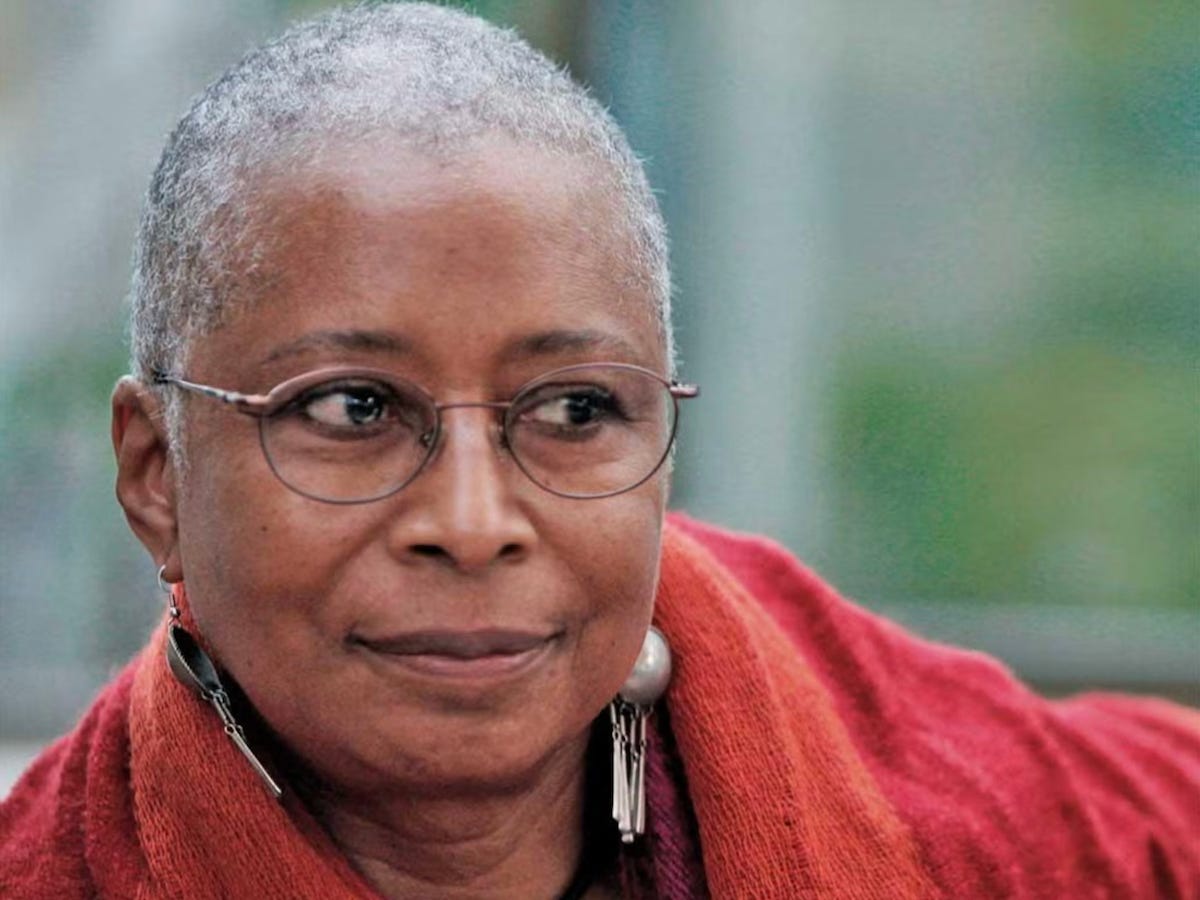
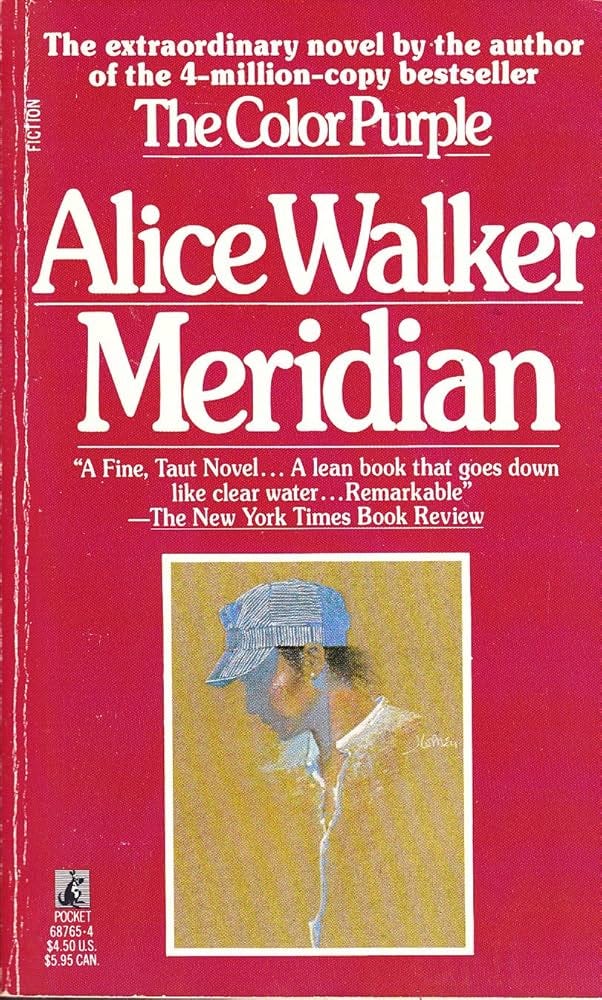
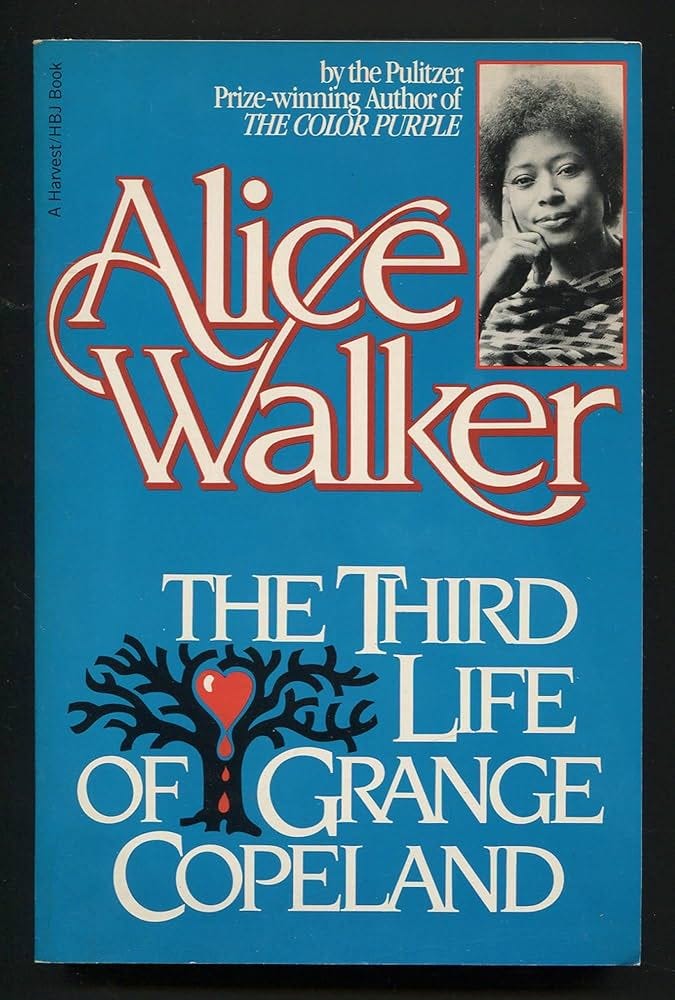
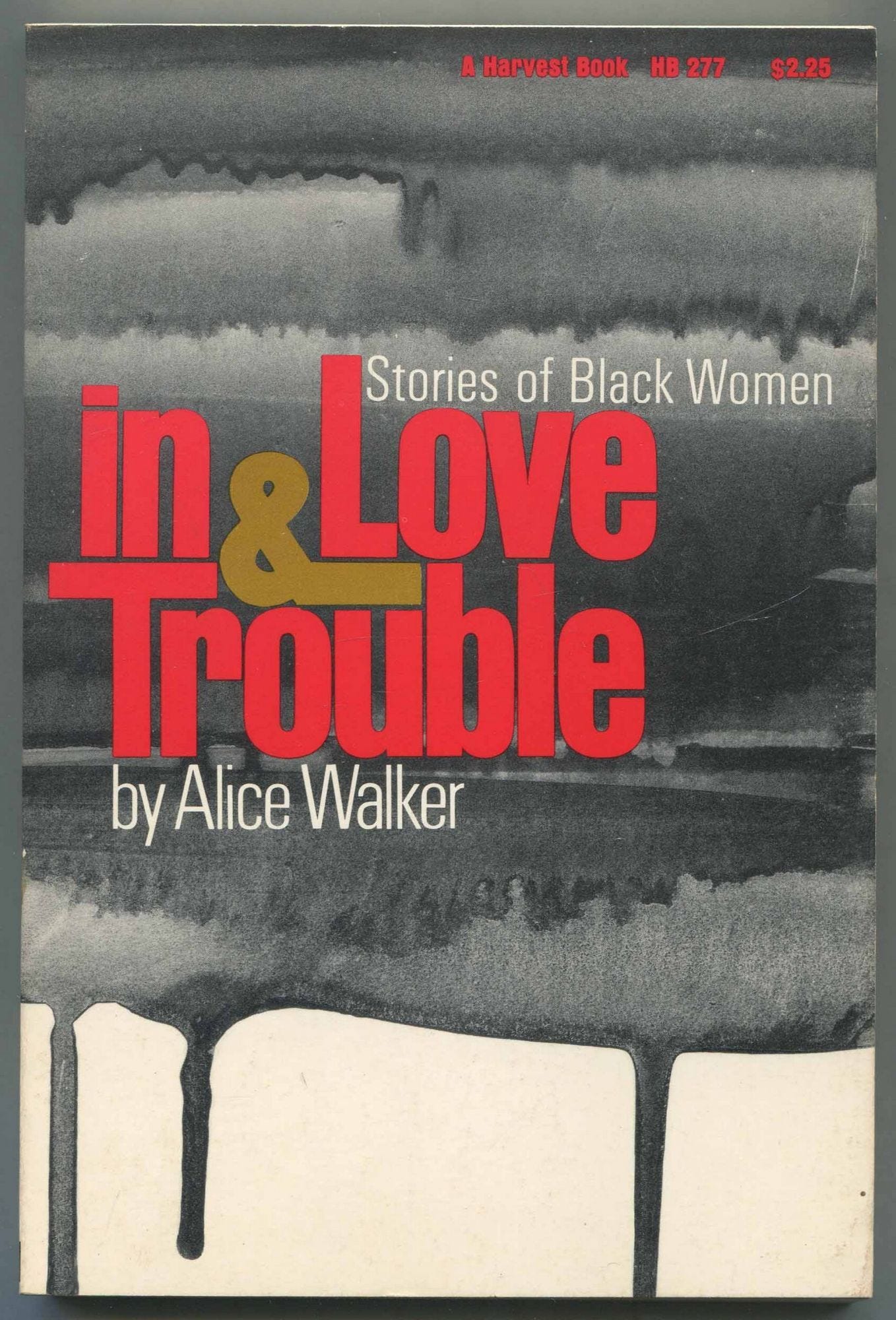
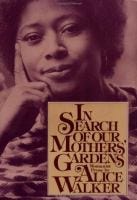
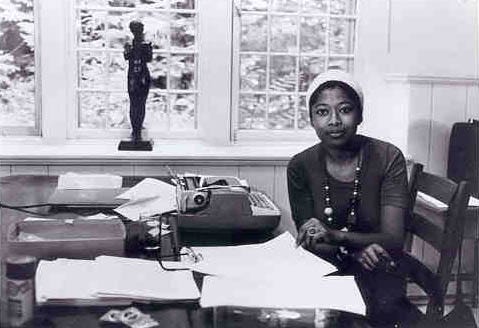
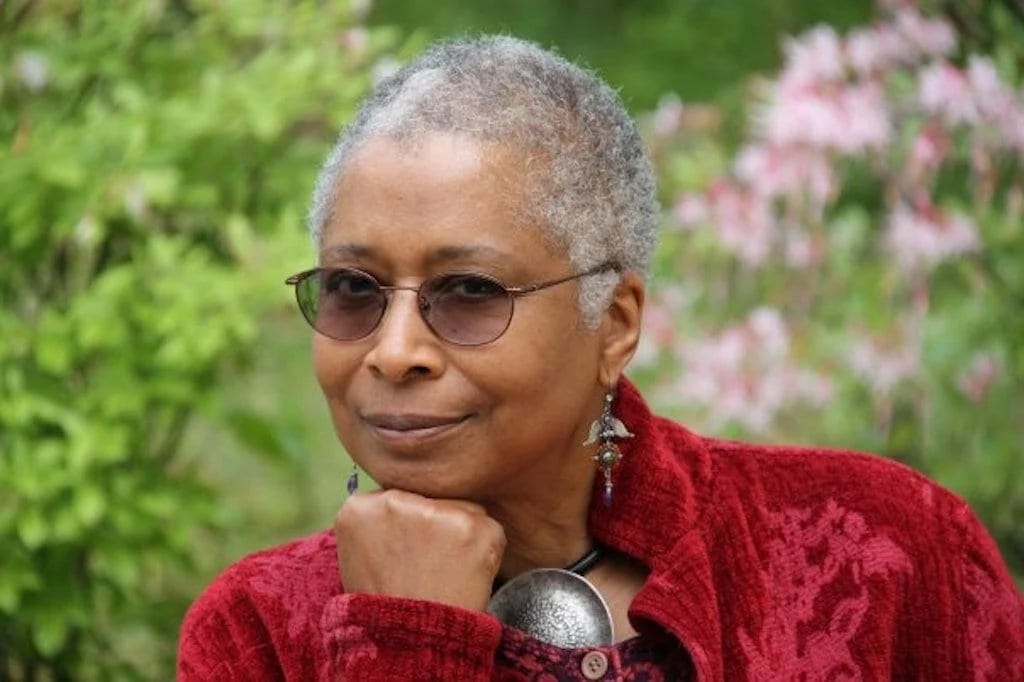

So much gratitude for this. The timing is divine and I need to express love to myself urgently.
"A beacon of literary brilliance" reading about Alice Walker was incredibly inspiring!